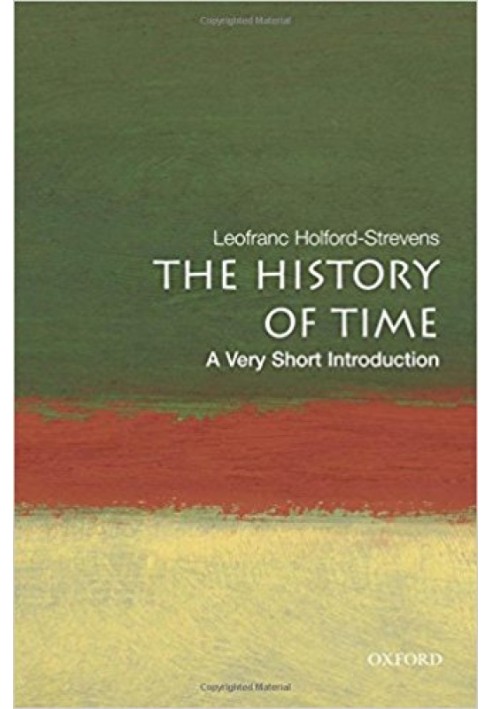The History of Time: A Very Short Introduction
 Instant download
Instant download
after payment (24/7)
 Wide range of formats
Wide range of formats
(for all gadgets)
 Full book
Full book
(including for Apple and Android)
Why do we measure time in the way that we do? Why is a week seven days long? At what point did minutes and seconds come into being? Why are some calendars lunar and some solar?The organization of time into hours, days, months, and years seems immutable and universal, but is actually far more artificial than most people realize. For example, the French Revolution resulted in a restructuring of the French calendar, and the Soviet Union experimented with five and then six-day weeks.Leofranc Holford-Strevens brings us this fascinating study of time using a range of examples from Ancient Rome and Julius Caesar's imposition of the Leap Year to the 1920's project for a fixed Easter. Those interested in time, history, and the development of the calendar will enjoy this absorbing exploration of an aspect of our lives that we all take for granted.
Data sheet
- Name of the Author
- Leofranc Holford-Strevens
- Language
- English
Reviews
Чудове дослідження часу, яке змінює наше сприйняття!
Книга "Історія часу: дуже короткий вступ" - це неймовірно захоплююче та пізнавальне читання, яке відкриває очі на те, як ми організовуємо та сприймаємо час у нашому повсякденному житті. Леофранк Холфорд-Стревенс майстерно досліджує історичні аспекти вимірювання часу, пояснюючи, чому тиждень триває сім днів, звідки походять хвилини та секунди, і як різні культури розробляли свої календарі. Ця книга не лише інформативна, але й спонукає до роздумів про те, як історичні події, такі як Французька революція, вплинули на наше сприйняття часу. Автор використовує безліч прикладів, які роблять матеріал легким для сприйняття і водночас надзвичайно цікавим. Я б рекомендував цю книгу всім, хто хоче глибше зрозуміти, як час формує наше життя і чому ми вимірюємо його саме так. Це не просто книга про час, це справжня подорож у світ історії та культури!











